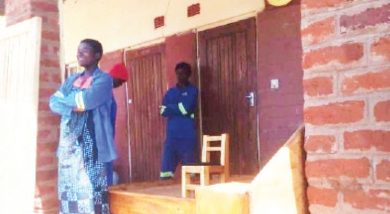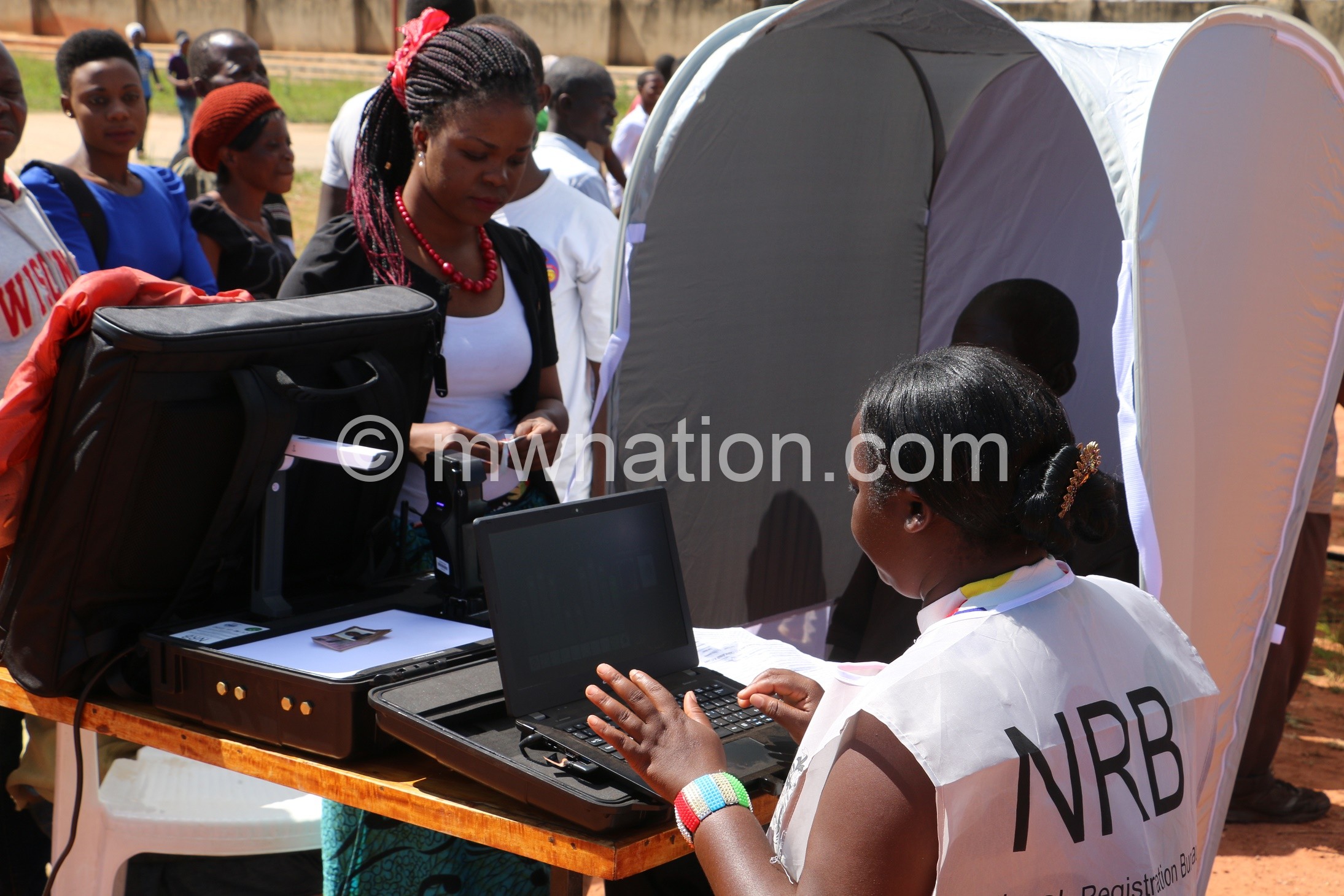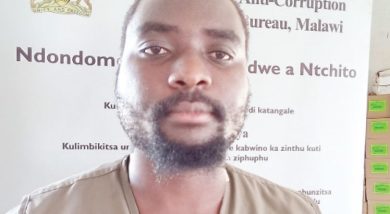Chakwera”s gamble
President Lazarus Chakwera has picked three ropes—food, wealth and jobs—that could either hung him out of re-election or propel him to another term if he will run.
Speaking during the State Opening of the third Meeting . in the 49th Session of Parliament and the 2021/22 Budget Meeting, Chakwera said the three agenda items are his chosen outcomes by 2025, which is the year for the next general election
“Firstly, we aim to achieve permanent food security for all Malawians so that hunger is forever a thing of the past. Secondly, we aim to create jobs for Malawi’s youth so that they are self-reliant, active, and productive contributors to Malawi’s development. Thirdly, we aim to create wealth for Malawians so that they are the primary beneficiaries of any economic activity we foster,” said the President yesterday.
The three-pronged yardstick will help gauge “the urgency or agency” of any government policy, or programme, or project and will help measure whether government is able to put meals on the tables of Malawians, money in the pockets of Malawians, and work in the hands of Malawians, the President said.
Chakwera outlined a triplet of areas he dubbed accelerators— infrastructure, human capital and digitisation—in which his administration will invest to ensure Malawians have food, jobs and money within the context of the country’s long term vision, Malawi 2063, whose ultimate aim is to turn Malawi into an upper middle income nation by 2030.

In 1998, Malawi set out on an ambitious development journey to graduate to a middle-income country with a per capita income of at least $1 036 by the year 2020 but that vision completely failed.
Malawi’s per capita income was only estimated at $603 by the end of 2020 from $228 in 1996.
To achieve a middle-income status, the Malawi 2063 envisages to grow the domestic economy by an annual average of seven percent, a yardstick which most development analysts we spoke to yesterday described as a “tall order.”
The President said his infrastructure accelerator will focus on transport and energy; his human capital development
plan will prioritise health and education while pushing for governance reform and digitisation completes his package of three enablers.
Using a metaphor, Chakwera said the creation of jobs, wealth, and food security “is the promised land at the end of our journey,” adding that the strategic ministries, department and agencies (MDAs) instrumental to achieving such ends are the vehicle that must be driven skilfully to the final destination.
Chakwe r a c i t ed the Legislature, Judiciary and the Executive as vehicles through which MDAs are delivering the change Malawians fought for, as well as the deliberate measures that the Tonse administration is putting in place to accelerate the pace of change.
But the President—whose plan
lacked specifics that might only become clearer when the national budget is presented—is likely to face questions of where he will get the money to pull off his expansive and potentially expensive agenda.
Already, the government’s fiscal space is dwindling on the back of rising public debt stock to feed a historic budget deficit, which in the current fiscal year has risen to 8.8 percent of gross domestic product (GDP), up from 4.6 percent three years ago.
By December 2020, public debt rose substantially to hit a nominal value of K4.8 trillion, an increase from K4.1 trillion debt stock in June 2020.
Primary budget deficit, as of February 2021 was also revised upwards to a historic K810 billion from K755 billion during the initial design of the 2020/21 budget, a maiden financial plan by Tonse Alliance administration.
The approved budget was initially pegged at K2.2 trillion but was later revised at mid-year to K2.3 trillion on the back of increased expenditure needs amid shrinking revenue base.
Reacting to the three outcomes which Chakwera has chosen in the next four years, international development expert Peter Yakobe yesterday described food security as key to alleviating poverty.
He said: “However, while the Affordable Inputs Programme [AIP] is yet to prove its effectiveness in achieving food security, the beneficiaries are normally people living in rural areas, so it might help him win an election.”
On job creation, he noted that while the youth comprise over 70 percent of the population, most of them are unemployed.
He added: “Job creation benefits economic development by facilitating the entry of young skilled people into productive sectors and enabling the economy to sustain or increase its productivity and competitiveness in the global market place.”
In a separate interview, economist Milward Tobias said the three focus areas mentioned by Chakwera respond to key issues that Malawians want.
“The phrase permanent food security signals increased drive towards irrigation, mechanisation and district anchor farms as put in Malawi 2063. Permanent food security cannot be delivered by AIP in its current form,” he said.
In a separate interview, Centre for Social Accountability & Transparency executive director Willy Kambwandira applauded the President for declaring a significant portion in fighting corruption in MDAs. However, he said there is “very little “progress on arrests made after Tonse government assumed power.
“As we stand, the fight against corruption is only cosmetic, public oversight institutions remain weak. The President has also failed to account how resources allocated for the M1, and other flagship projects in the 2020/21 Budget were used,” he said.
To develop the capacity
of Malawians, Chakwera said the Tonse government will focus on priorities in line with Malawi 2063 in the areas of health, education, information, land, social welfare and environmental protection.
On health, he said his government is committed to ensuring that there is a health service every five-kilometre radius by constructing 900 health posts and staff accommodation in hard-to-reach areas by 2022.
On education, Chakwera hinted that in the 2021/22 financial year, government will accelerate the completion of school infrastructure projects, including Chikwawa, Mchinji and Rumphi teacher training colleges, and the expansion of Domasi College of Education.
To u c h i n g o n u r b a n development, he said government is committed to the provision of decent housing to public servants, adding government has started the construction of 10 000 houses for security institutions.
On social protection, Chakwera said government continues to reach out to the poorest through the social cash transfer programme, with a registered 293 000 households and Enhanced Public Works Programme of 10 000 registered households.
However, his agenda also faces climate change risk as crop production—the nexus of the country’s food security strategy—heavily relies on rain-fed agriculture which is easily hit by droughts or flash floods as forest cover disappears into charcoal and firewood.
To counter such a challenge, Chakwera said government plans to facilitate the establishment and operationalisation of the Malawi Environmental Protection Authority, 20 State-owned industrial plantations and complete the review of the Forest Act, among others.
On transport and public works, he said government plans to expand to dual carriageway the M1 from Crossroads Roundabout to Alimaunde in Kanengo, at a cost of $25 million through a grant from the People’s Republic of China, expand to dual carriageway the M1 section between Sunbird Lilongwe and Lilongwe CCAP with about $30 million grant from the Japanese Government, expand to six lane Kenyatta Drive and Mzimba Street at an estimated cost of K30 billion; and also rehabilitate the M1 from Kamuzu International Airport Junction to Mzimba Turn Off and from Kacheche to Chiweta at an estimated cost of 195 million euros.





